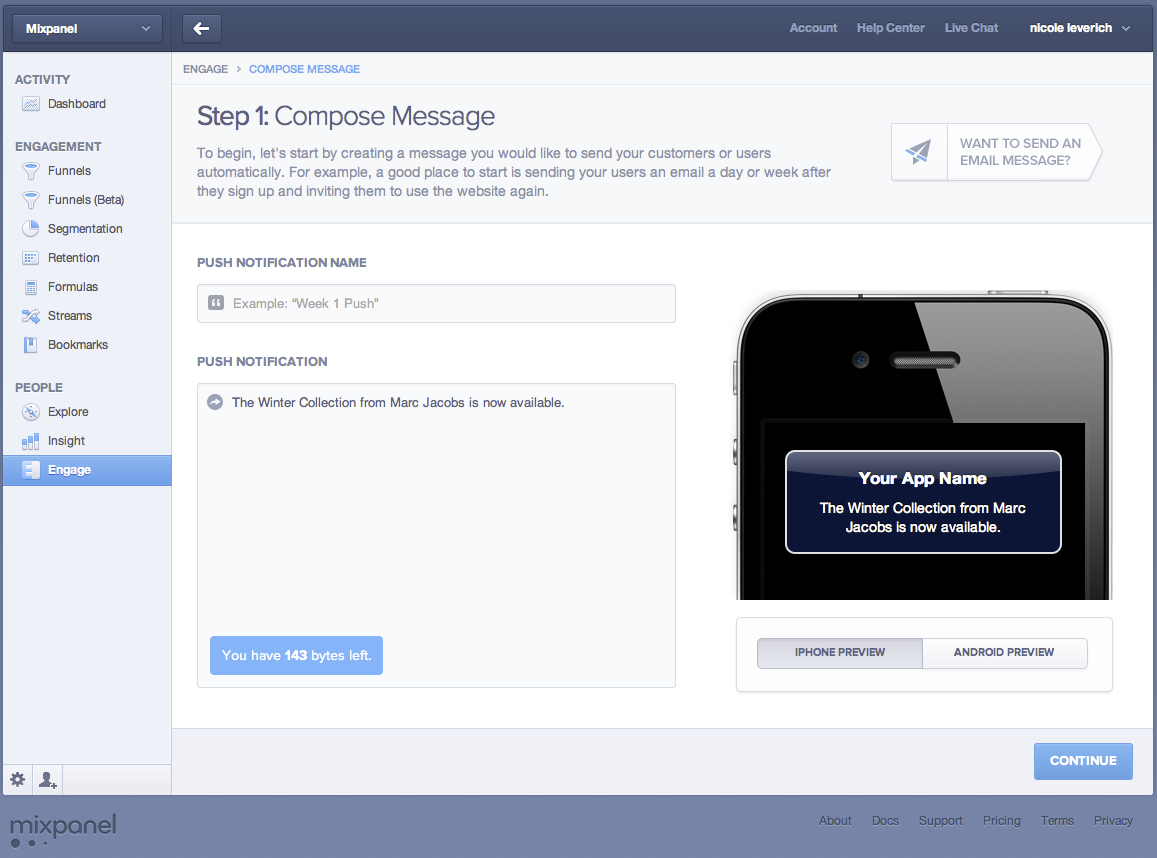Mixpanel, an analytics startup that was incubated by Y Combinator and backed by Andreessen Horowitz (among others), is announcing a new product called Engage, which co-founder Suhail Doshi described as a way for businesses to actually do something with the data that they’re collecting.
Taking action on data, specifically by using it to deliver personalized messages to customers, is something promised by other analytics companies (though not necessarily Mixpanel’s direct competitors). For example, it’s one of the features offered with Woopra’s real-time analytics, and Optimizely CEO Dan Siroker has told me that his future plans include more segmentation and personalization. For the most part, however, Doshi said most companies still deliver the same communication to all of their customers.
Engage is built on top of the people analytics product Mixpanel launched in July, which allows customers to view profiles of each visitor to their website or user of their app, and also to view aggregate data. With Engage, those customers can actually take that user data and use it to deliver targeted messaging, either through email or SMS text messages, then use Mixpanel data to see whether those efforts actually paid off.
For example, Doshi said that when a mobile game developer updates their app, they could send a notification about the update to users who haven’t open the game in a certain period of time (rather than delivering a blanket message to their entire user base).
Doshi also said that he has used the Engage for Mixpanel itself. He noticed that some visitors are invited to Mixpanel by their co-workers, but never return after their initial visit. So he created a video aimed at new users that explained how to use the product, and he sent an email about the video to users who hadn’t visited the site in at least two weeks. And instead of measuring the success of that email by looking at opens or clicks, Doshi tracked those users to see whether they actually started to use Mixpanel again, and whether they continued to do so. He said the philosophy is similar to Mixpanel’s strategy for measuring websites and mobile apps, where it tries to look deeper than pageviews.
“We didn’t care about who opened [the email], and we didn’t care about who watched the video,” Doshi said. “We cared about who went back and used that feature.”
He argued it would be tough for other email marketing and push notification companies to replicate Mixpanel’s work, because they don’t have the data to power it. Doshi said he wants to partner with those companies in the future, pairing Mixpanel’s analytics with their broader array of marketing and customer service tools.
Engage is available as a free service to customers paying for Mixpanel’s people analytics product.

